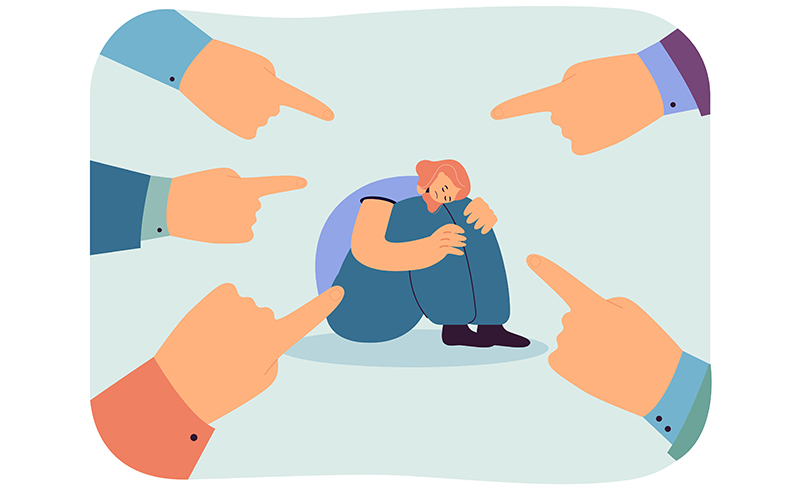
Health issues
Mental health stigma refers to negative attitudes, beliefs, and stereotypes related to mental health issues and those who experience them. This stigma can manifest in many ways and lead to discrimination, social isolation, and barriers to help and support. Here are some key tips for understanding mental health stigma.
Consequences of Mental Health Stigma:
-
Delayed treatment
Stigma can deter people from seeking help for their mental health problems. Fear of being judged or labeled can cause people to suffer in silence and avoid treatment until their condition worsens.
-
Self-stigma
Some people with mental illnesses internalize this stigma, which leads to self-stigma.
-
Discrimination
Discrimination in employment, education, and housing can be a direct consequence of mental health stigma.
Understanding Stigma in Mental Health
Tips for understanding mental health stigma:
-
Common misconceptions
Stigma often stems from a lack of understanding and misconceptions about mental health conditions. Many people have false beliefs about the causes and nature of these conditions.
-
Labeling and stereotyping
People with mental health problems are often unfairly labeled and stereotyped. This can lead to prejudice and discrimination in various aspects of life, including employment, housing, and social relationships.
-
Self-image
People who experience mental health problems may internalize negative stereotypes and feel ashamed or inferior. This self-image can prevent them from seeking help and support.
-
Barriers to treatment
Stigma can create significant barriers to accessing mental health care. People may delay or avoid seeking help for fear of judgment or discrimination, which can lead to worse conditions and outcomes.
-
Cultural changes
Stigma about mental health can vary across cultures and societies. Different cultural norms, beliefs, and values can influence how mental health issues are perceived and treated.
-
Education and Awareness
One of the ways to fight stigma is through education and awareness campaigns. Promoting accurate information about mental health and encouraging open conversations can help reduce stigma.
5 ways to end mental health stigma
1. Educate yourself and your children about mental health.
2. Provide background on mental health disorders.
3. Describe mental health as a continuum.
4. Show solidarity with others.
5. Share recovery messages.
Conclusion:
Mental health stigma is a pervasive and harmful issue that affects millions of people around the world. Not only does this keep people from asking for help, but it also perpetuates feelings of shame and isolation. However, by collectively addressing and combating the stigma of mental health through education, awareness, and advocacy, we can work towards a society where people with mental health challenges are treated with the compassion, understanding, and dignity they deserve.
Challenging Mental Health Stigma:
Reducing the stigma of mental health is a complex and ongoing process, but it is essential to ensure that people with mental health problems receive the care and support they need without fear of discrimination or judgment. This requires efforts at the individual, societal, and systemic levels to promote understanding and empathy.
Reference:
https://www.childrens.com/health-wellness/5-ways-to-end-mental-health-stigma
https://www.who.int/news-room/fact-sheets/detail/mental-health-

Leave a Reply